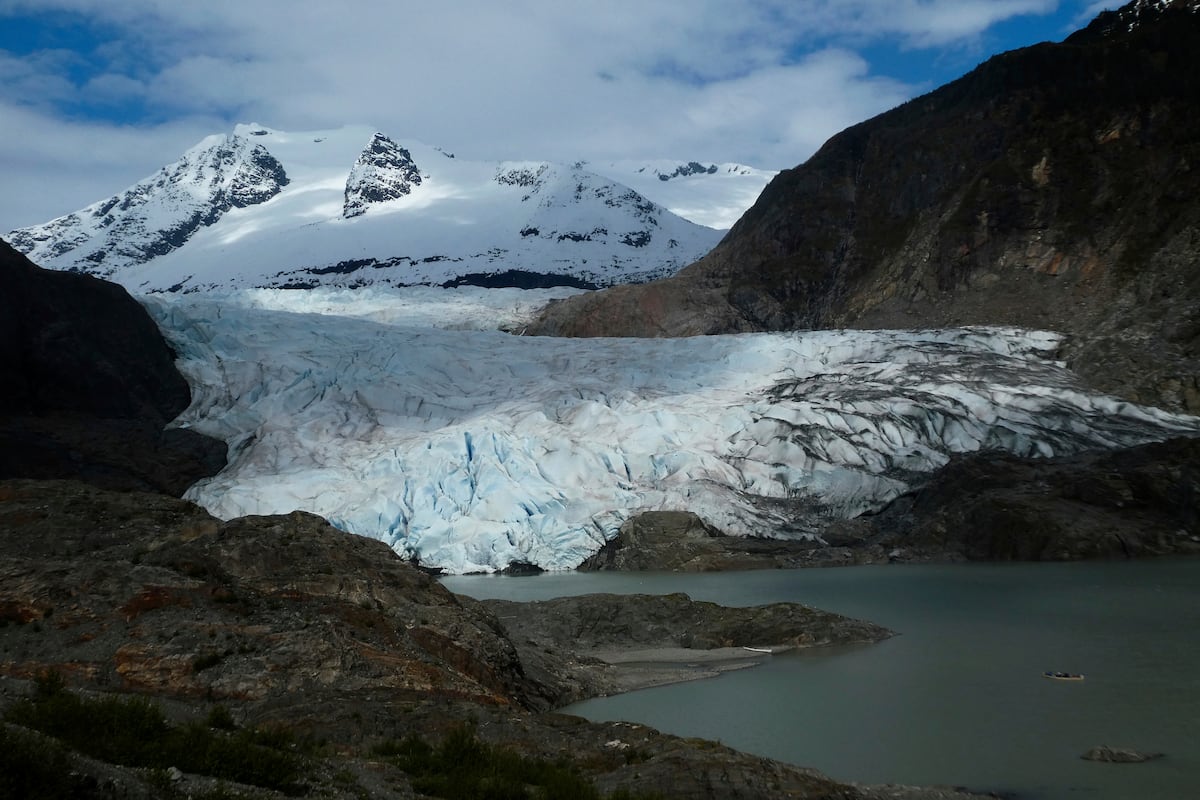Alaska is not Crimea, and in the Russian collective imagination, that region in the Bering Strait is associated with difficult expeditions long ago, not with the pleasant childhood experiences of Russian citizens who were once Soviet subjects, as is the case with the Ukrainian peninsula in the Black Sea, annexed by Moscow in 2014 contrary to international law.
Alaska is where Russian President Vladimir Putin and U.S. President Donald Trump will meet Friday for a summit that could be crucial for the future of Ukraine. The choice of this location — which a Russian president has never set foot on — is no coincidence.
Within the spectrum of Russian nationalism, both the philosopher Alexander Dugin, the theorist of the Eurasian idea, and the Orthodox businessman Konstantin Malofeev have reacted positively to the choice of Alaska.
“Of course, Alaska shouldn’t have been sold,” stated Dugin on his Telegram channel, advising the Russian president to “give nothing and take everything” at the meeting. “If we don’t punish Kyiv and the West for everything they’ve done to us, no one will take us seriously.”
For his part, Malofeev, the financier who promoted the annexation of Crimea and later facilitated the arrival of Russian fighters in Donetsk in 2014, describes the decision as “exotic at first glance, but the most correct one,” and argues that it avoids “giving away to just anyone” the laurels of mediator between Russia and the U.S. “[Ukrainian President Volodymyr] Zelenskiy will find it convenient to arrive in case the adults call him to read them poetry after dinner,” the tycoon states with causticity.
In his book Empire, Malofeev wrote that the sale of Alaska was prompted by the financial crisis and also because the Russian Empire wanted to secure a peaceful neighbor and keep Britain away from those regions. However, “the domination of Alaska substantially strengthened Washington and whetted American colonial appetites,” he noted.
On the website of the Tsargrad TV channel, which Malofeev founded, it was stated that the choice of Alaska as the venue for the meeting between Putin and Trump “is not accidental.” “This is the place where the Russian flag was first sold and the will of Emperor Nicholas I was violated. The Russian flag should not be lowered where it has once been raised,” the commentary said.
Sold in 1867 by Tsar Alexander II to the United States for 7.2 million gold rubles, Alaska became part of “American Russia,” as the group of coastal colonies conquered by Russian explorers and travelers is known, including points in California such as Fort Ross.
Alaska and Chukotka, the Russian peninsula west of the Bering Strait, are separated by just 86 kilometers (53 miles) in a straight line, and today the only border between the U.S. and Russia runs through there. Most of the Aleutian Islands, a long chain of nearly 150 islands, remain on the North American side.
After expanding into eastern Siberia, the Russian Empire began colonizing Alaska in the 18th century, especially during the reign of Catherine the Great. And in 1799, under Emperor Paul I, the Russian America Company was established, a state entity under the patronage of the Tsar, whose purpose was to exploit Alaska’s hunting, fishing, and natural resources. However, the region was not profitable, partly due to overexploitation and theft of its produce. As early as 1853 (at the time of the beginning of the Crimean War in the Black Sea), the imperial administration considered selling the territory. The transaction was completed in 1867. Gold and oil would follow later.
To date, established Russian propagandists have not raised any potential territorial claims to Alaska, although there is no shortage of laments among ultranationalist circles about having lost it.
The annexation of Crimea in 2014 demonstrated that Putin’s Russia is not exactly known for respecting its international and bilateral agreements (in which it repeatedly recognized Ukraine’s territorial integrity). However, if for Putin and his entourage Ukraine is “not a state,” the U.S. is, on the other hand, the desired partner, envied and hated at the same time, with whom they would like to reestablish a privileged relationship that, in some ways, would evoke that between the two superpowers during the Cold War.
But the world today is not bipolar, and the Russia-U.S. duo is incomplete without China, especially if it takes place in the North Pacific and at the eastern beginning of the route across the Arctic Circle.
Alaska was the subject of a very popular song composed in 1990 in the USSR. It was sung by the group Liube and went like this: “Don’t play dumb, America. Don’t play dumb, America, […] give us back our little land of Alaska, give us back our beloved land.”
“Siberia and Alaska, the two lands are the same, sauna, vodka, accordion, and salmon,” sang the soloist Nikolai Rastorguev, who later became a follower of Putin, campaigned for the president, and supported the annexation of Crimea, for which he has been sanctioned in the West.
Sign up for our weekly newsletter to get more English-language news coverage from EL PAÍS USA Edition

